$500.00 – $850.00
Sex: male & female
SPECIES: Bush Babies
PET’S AGE: 10 weeks old
Birth Certificate Available
Full Vet Records Available (1 year health guarantee)
CHARACTERISTICS: young Bush Baby on sale, vet checked, hand raised and well trained, companion, cute, exotic, handfed, house trained, pet, playful, tamed, ready for new home, friendly, lovely and easily associate with people, very adaptable and sociable since they been raised amongst our kids and other pets such as birds, cats and dogs, response to name. They also comes with play toys, care and food menus.
Bush Babies for Sale: The Ultimate Guide to Owning These Adorable Primates
Bush babies, also known as Galagos, are captivating little creatures that have become popular among exotic pet lovers. With their large, endearing eyes, nimble movements, and nocturnal nature, these tiny primates are fascinating animals that attract people looking for something unique. If you’ve been searching for bush babies for sale or are curious about how to care for them, you’re in the right place. Whether you’re looking for bush babies for sale near me, bush babies for sale in Florida, or wondering how much do bush babies cost, this comprehensive guide will cover everything you need to know about these intriguing primates.
What Are Bush Babies?
Bush babies are small, nocturnal primates that belong to the Galagidae family. Native to Africa, these animals have sharp night vision, heightened hearing, and an impressive ability to leap from tree to tree. There are several species of bush babies, but the most commonly seen in the pet trade are the lesser bush baby (Galago senegalensis) and the greater bush baby (Otolemur crassicaudatus).
These creatures derive their name from their vocalizations, which resemble the cries of a human baby. Though small, bush babies possess powerful hind legs that allow them to leap up to 10 feet in a single bound, making them one of the most agile creatures in the wild.
Bush babies are arboreal, meaning they live in trees. In their natural habitat, they are highly active at night, moving through the forest canopy in search of food. Their large eyes help them navigate in the dark, and their sensitive ears can detect even the faintest movements of insects or other small prey.
Physical Characteristics of Bush Babies
One of the most striking features of a bush baby is its large, round eyes, which provide excellent night vision, a key adaptation for their nocturnal lifestyle. Bush babies have short faces, but their expressive eyes give them an adorable appearance, making them irresistibly cute to many potential pet owners. Their bodies are small and compact, with most species weighing between 5 to 15 ounces and measuring 5 to 8 inches in body length. Their tails, often longer than their bodies, are used for balance while leaping.
Bush babies’ coats are soft and dense, with colors ranging from gray to brown. Their hands and feet are equipped with sharp claws and padded toes that allow them to grip branches securely as they move. Despite their small size, they are surprisingly strong and agile.
Species of Bush Babies
There are over 20 species of bush babies, with two of the most common species being:
- Lesser Bush Baby (Galago senegalensis): This smaller species is typically found in the wilds of East Africa and is known for its smaller size and high energy.
- Greater Bush Baby (Otolemur crassicaudatus): As the name suggests, the greater bush baby is larger and is more common as a pet than its smaller cousins. They can be a bit more relaxed compared to the lesser bush baby but still require plenty of space and attention.
Each species has its own care requirements and personality traits, so it’s important to research the specific species of bush baby you are interested in before making a purchase.
Behavior and Personality of Bush Babies
Bush babies are known for being highly energetic and inquisitive. These tiny creatures are nocturnal, meaning they are most active at night. During the day, they typically sleep in small, enclosed spaces or nests, and once the sun sets, they begin their nighttime activities, which include jumping from branch to branch, exploring their environment, and foraging for food.
Bush babies are also vocal animals, using a range of sounds to communicate with each other. Their distinctive cries, which resemble those of a human baby, are how they got their name. They also use other sounds like clicks, whistles, and growls to express various emotions or communicate with their owners.
While they can be social animals, bush babies are naturally shy around humans and may require significant time and patience to build trust. Socializing a bush baby from a young age is crucial to help them adjust to human interaction. Owners who spend a lot of time with their bush babies may find that their pet becomes more comfortable and develops a close bond over time.
However, even well-socialized bush babies retain some wild instincts, and they can be independent or aloof compared to more domesticated pets like cats or dogs. Understanding their unique temperament and respecting their boundaries is key to fostering a positive relationship.
Are Bush Babies Good Pets?
Bush Babies For Sale can make wonderful pets for those who are ready to meet their unique needs and provide a stimulating environment. However, they are not ideal for everyone. These primates are active, intelligent, and require a significant amount of space, interaction, and mental stimulation to thrive. If you’re someone who is looking for an exotic pet with a playful yet shy personality, a bush baby might be a good match.
However, before you start searching for bush babies for sale near me, it’s important to consider the following:
- Nocturnal Nature: Bush Babies For Sale are primarily active at night. If you are a light sleeper or prefer a pet that is active during the day, a bush baby may not be the best choice. Their activity at night means they can make noise or require attention when you are trying to sleep.
- Enclosure Requirements: These agile primates need a large, spacious enclosure that allows them to jump and climb. A tall, multi-level cage with plenty of branches, ropes, and toys is essential for their well-being.
- Social Needs: While bush babies are shy around humans, they still require regular interaction to prevent boredom. In the wild, they live in social groups, so keeping a bush baby alone may lead to loneliness. Some owners opt to keep a pair of bush babies to ensure they have companionship.
- Time and Commitment: Caring for a bush baby is a long-term commitment. With proper care, bush babies can live up to 12-15 years in captivity. Make sure you’re prepared for the responsibility before bringing one home.
If these factors align with your lifestyle and you’re ready to put in the time and effort, owning a bush baby can be a rewarding and unique experience.
Caring for Bush Babies
Owning a Bush Babies For Sale requires knowledge, preparation, and a significant amount of commitment. Here are the key elements of caring for a bush baby:
1. Diet
In the wild, Bush Babies For Sale have a varied diet that includes insects, fruit, tree sap, and small animals. In captivity, it’s important to provide a diet that mimics their natural food sources as closely as possible. A balanced diet for a bush baby should include:
- Insects: Crickets, mealworms, waxworms, and grasshoppers are excellent protein sources. Feeding live insects is preferred, as it encourages natural foraging behaviors.
- Fruit and Vegetables: Fresh fruits such as bananas, apples, and melons are suitable for bush babies, though it’s important to avoid overly acidic fruits like citrus. Vegetables such as sweet potatoes and carrots can also be included.
- Tree Gums: In the wild, bush babies consume tree gums and saps, which are important sources of carbohydrates. In captivity, you can provide acacia gum or similar products to meet this need.
Ensure that your Bush Babies For Sale has fresh water available at all times. It’s also a good idea to supplement their diet with vitamins and minerals to ensure they receive all the necessary nutrients.
2. Housing
Bush Babies For Sale need a large, multi-level enclosure that allows them to move freely and climb. Their cage should be tall rather than wide, with ample vertical space for jumping and exploring. Provide plenty of natural branches, ropes, and platforms for them to climb on, as well as hiding spots where they can retreat to sleep during the day.
Temperature control is also important, as bush babies thrive in warmer climates. Their enclosure should be kept at a temperature of 70°F to 80°F. You can use heat lamps or ceramic heaters to maintain a stable temperature.
Additionally, the cage should be escape-proof, as Bush Babies For Sale are strong and determined climbers. The bars should be close enough together to prevent them from squeezing through, and any openings should be securely fastened.
3. Socialization
While Bush Babies For Sale are naturally shy, socializing them from a young age can help them become more comfortable around humans. Owners should spend time interacting with their bush baby daily, offering food by hand, playing with toys, and gently handling them to build trust.
Be patient, as it may take weeks or even months for a bush baby to fully acclimate to its new environment and feel safe around you. Some bush babies may never become fully tame, but with consistent interaction, they can form a bond and become less fearful.
4. Enrichment
Bush babies are intelligent creatures that need plenty of mental and physical stimulation. Without enrichment, they may become bored or stressed, leading to behavioral issues such as self-mutilation or excessive vocalization.
To keep your bush baby engaged, offer a variety of toys, climbing structures, and puzzles. Change their environment frequently by rearranging branches or introducing new objects to explore. You can also hide food around their enclosure to encourage natural foraging behaviors.
5. Health and Veterinary Care
As exotic pets, bush babies require specialized veterinary care. It’s important to find a veterinarian who is experienced with primates or exotic animals to ensure your bush baby receives proper care. Regular checkups are crucial for monitoring their health, and they may require vaccinations or treatments for parasites.
Bush babies are generally hardy animals, but they can be susceptible to certain health issues, including:
- Nutritional deficiencies: Providing a balanced diet is essential to prevent issues like calcium deficiency or obesity.
- Injuries: Bush babies are active jumpers, and they may injure themselves if they fall or land awkwardly.
- Parasites: Like all animals, bush babies can be prone to parasites such as mites or intestinal worms. Regular veterinary care and proper hygiene can help prevent infestations.
Legality and Regulations
Before purchasing a bush baby, it’s important to check the legality of owning one in your area. Bush babies for sale may not be available in every state due to exotic animal regulations. Some states or cities have strict laws regarding the ownership of primates, while others may require special permits.
For example, bush babies for sale in Florida may be regulated under the state’s exotic pet laws. In Florida, a Class III wildlife permit is required to own a bush baby, and potential owners must meet specific requirements related to housing, care, and experience.
Additionally, it’s crucial to source your bush baby from a reputable breeder or exotic pet dealer who adheres to ethical practices and legal standards. Avoid purchasing from illegal breeders or sellers, as this not only puts you at risk of legal trouble but also supports the harmful exploitation of wild animals.
How Much Do Bush Babies Cost?
One of the most common questions potential buyers ask is, how much do bush babies cost? The price of a bush baby can vary depending on several factors, including the species, age, and location of the seller. On average, bush babies cost anywhere between $2,500 to $5,000, though prices can go higher depending on rarity and demand.
Keep in mind that the initial purchase price is just one part of the overall cost of owning a bush baby. Additional expenses include:
- Enclosure and Accessories: A large, high-quality cage, branches, toys, and bedding will be necessary to create a suitable habitat. This can cost $500 to $1,000 or more.
- Food and Supplements: Providing a balanced diet of insects, fruits, and supplements will be an ongoing expense.
- Veterinary Care: Routine checkups, vaccinations, and emergency care should be factored into the cost. Exotic pets often require specialized veterinary services, which can be more expensive than standard pet care.
- Permits and Licensing: Depending on your location, you may need to obtain special permits or licenses to legally own a bush baby. These permits may have associated fees.
Before purchasing a bush baby, make sure you are financially prepared for the long-term costs of ownership.
Finding Bush Babies for Sale
If you’ve done your research and are ready to bring a Bush Babies For Sale into your home, the next step is finding a reputable seller. While bush babies for sale are available from exotic pet breeders and dealers, it’s crucial to choose a source that prioritizes the health and well-being of the animals.
Here are some tips for finding a trustworthy seller:
- Research the Seller: Look for reviews or testimonials from previous buyers to ensure the breeder or dealer has a good reputation.
- Ask Questions: A reputable seller should be knowledgeable about the care and requirements of bush babies and willing to answer any questions you have. They should also provide information about the animal’s health, diet, and socialization.
- Visit the Facility: If possible, visit the breeder’s facility to see the conditions in which the bush babies are raised. The animals should be kept in clean, spacious enclosures and appear healthy and well-cared for.
- Check for Permits: Ensure the seller has the necessary permits or licenses to breed and sell exotic animals. This is especially important if you’re purchasing a Bush Babies For Sale in a state with strict regulations.
Whether you’re searching for bush babies for sale near me or bush babies for sale in Florida, take your time to find a reputable source to ensure you’re getting a healthy, well-adjusted pet.
Conclusion
Owning a Bush Babies For Sale can be a rewarding and unique experience, but it’s important to understand the commitment involved before making a purchase. These exotic primates require specialized care, attention, and plenty of space to thrive. Before bringing one home, make sure you’ve thoroughly researched their needs and are prepared to provide a safe, stimulating environment for your new pet.
When looking for bush babies for sale, prioritize finding a reputable breeder and ensure that you’re aware of any legal requirements in your area. With the right care, your bush baby can become a fascinating and cherished companion for many years to come.
| sex | Female, Male |
|---|---|
| Purchase Option | 100% Payment, Reserve |
Be the first to review “Bush Babies For Sale” Cancel reply
Related products
SMALL PETS
SMALL PETS
SMALL PETS
SMALL PETS
SMALL PETS
SMALL PETS

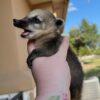








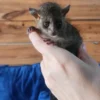






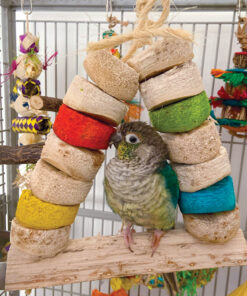

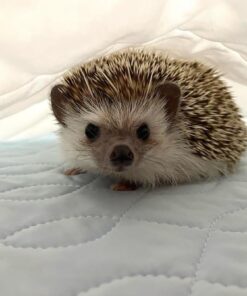
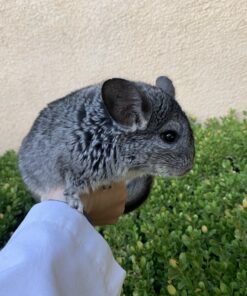

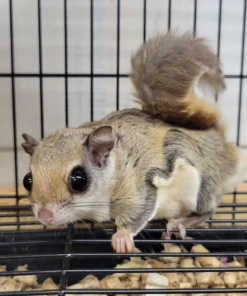
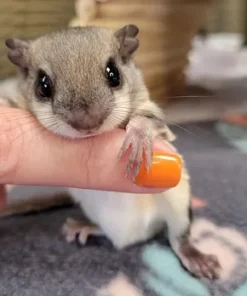

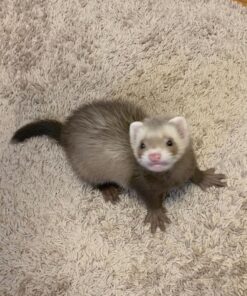


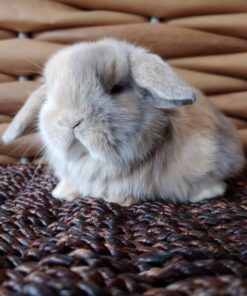

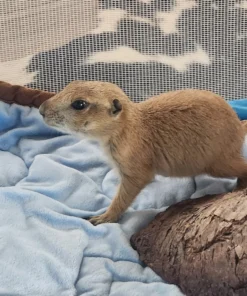
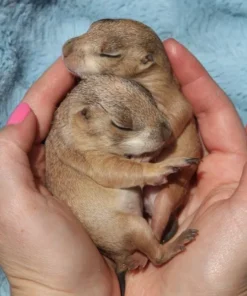
Reviews
There are no reviews yet.